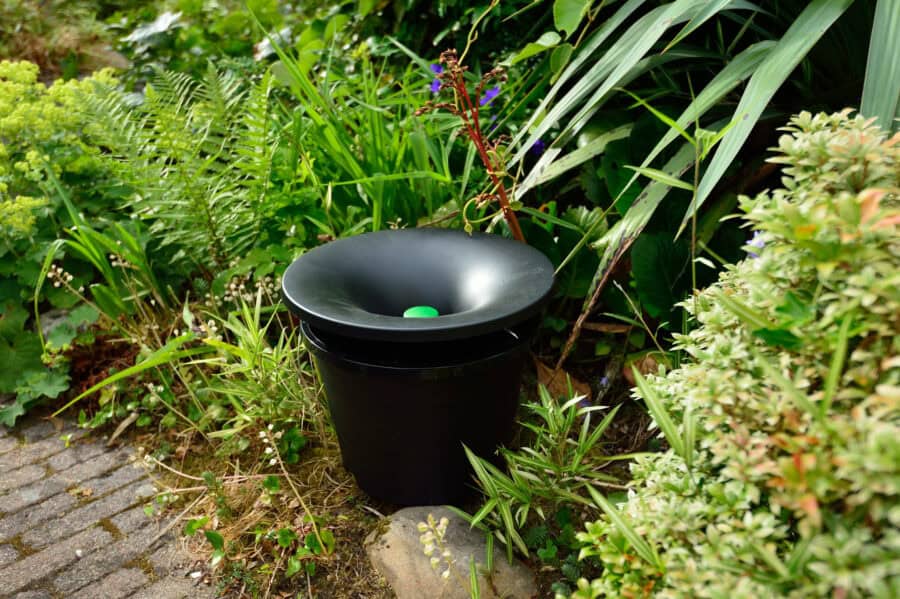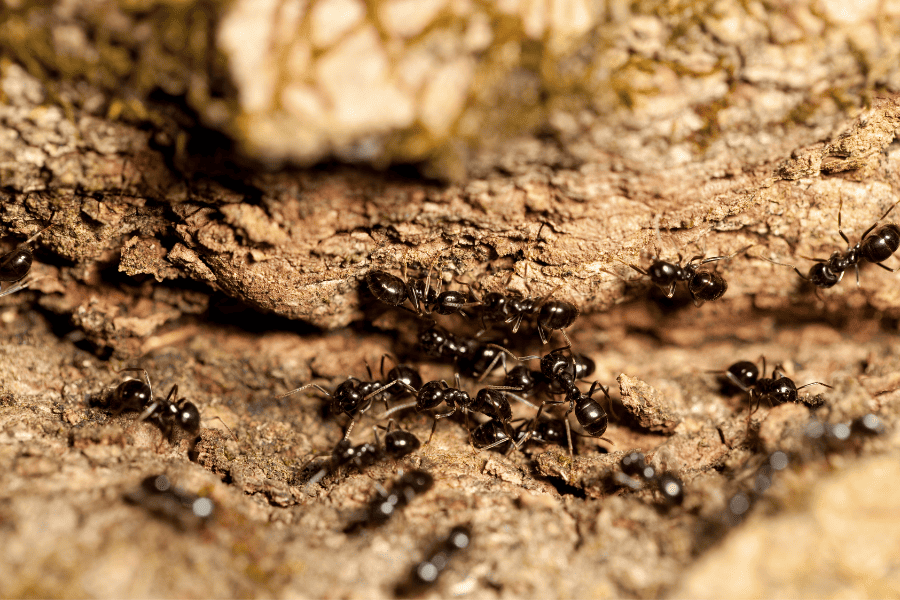READY TO GET STARTED?
REQUEST A FREE ESTIMATE
Fill out the form below or call (336) 226-1448 for a free, no-obligation estimate.

If you’ve ever dealt with ants in your kitchen or spiders in your basement, you know how frustrating pest problems can be. In Burlington, NC, the warm climate and seasonal changes make residential pest control a year-round priority. Whether you’re dealing with roaches, rodents, or mosquitoes, prevention is your best defense. Here are practical tips to help you avoid common pest issues and keep your home pest-free with pest control near me.
Pests often enter homes through small cracks, gaps in window frames, or around doors and utility pipes. Carefully inspect your home’s exterior and seal any openings with caulk or weather stripping. This simple step can block many pests from ever making it inside.
Food and water attract pests like ants, cockroaches, and rodents. Clean up crumbs and spills immediately, store food in airtight containers, and take out the trash regularly. Pay special attention to pet food bowls and kitchen appliances where food particles tend to collect.
Mosquitoes and other pests breed in standing water. Check your property for clogged gutters, leaky faucets, and birdbaths. Even small puddles or planter trays can become a breeding ground. Addressing moisture issues also helps prevent mold and protects your home from structural damage.
Your yard is the first line of defense against pests. Trim overgrown bushes, keep grass cut, and remove debris like woodpiles or leaf litter. These areas provide ideal shelter for insects and rodents. Keeping your landscaping tidy helps deter pests from nesting near your home.
Pests love dark, undisturbed areas. Basements, attics, and garages that are cluttered with boxes or unused items make the perfect hiding spots. Organize these areas, use sealed plastic containers instead of cardboard, and vacuum regularly to prevent infestations.
Even with preventive efforts, pests can sometimes slip through the cracks. That’s why scheduling regular pest control services from a local professional is a smart move. A licensed technician can spot early signs of pest issues and treat your home before they escalate into bigger problems.
If you see signs of an infestation—such as droppings, chewed wires, or unusual smells—don’t wait. Early intervention is key. Contact a provider for pest control near me to assess and address the issue promptly. Ignoring it can lead to bigger pest problems and costly damage.
Keeping your home pest-free is about more than just comfort—it’s about health, safety, and protecting your property investment. If you’re dealing with pests or want to prevent them before they start, our residential pest control experts in Burlington, NC are here to help.
Ready to stop pests in their tracks? Request a free quote today for expert pest control services that protect your home year-round. Give us a call or click the button below to get started!

Spring in North Carolina brings vibrant flowers and pleasant warmth, but it also invites one unwelcome guest—mosquitoes. These pesky insects not only disrupt outdoor activities but can also carry dangerous diseases like West Nile Virus and Zika Virus. Fortunately, there are effective, eco-conscious ways to protect your home from mosquitoes without compromising your family’s well-being or the environment.
In this guide, we’ll explore sustainable solutions for keeping mosquitoes away, from natural repellents to yard care tips and pest-repelling plants. Read on to learn how to enjoy a mosquito-free spring while being kind to the planet.
Traditional mosquito control methods often rely on harsh chemicals that can harm your health, disrupt ecosystems, and contaminate soil and water. By adopting eco-friendly alternatives, you’re not only protecting your family’s well-being but also protecting local wildlife and the environment. And, the best part? These methods can be just as effective as chemical treatments!
Here are three eco-friendly strategies to keep mosquitoes at bay naturally.
Chemical sprays may temporarily rid your home of mosquitoes, but they often leave harmful residues that can affect humans, pets, and wildlife. Thankfully, nature provides plenty of natural repellents that are just as effective and healthy for the environment.
Essential oils like citronella, eucalyptus, lavender, and peppermint are excellent mosquito deterrents. These oils not only repel mosquitoes but also provide a pleasant, non-toxic fragrance.
How to use them: Mix 10–20 drops of your favorite essential oil with water and a small amount of witch hazel in a spray bottle. Apply this DIY spray to your skin, clothing, and outdoor furniture. Reapply every few hours for optimal protection.
Pro Tip: Add a few drops of citronella or lemongrass oil to candles or tiki torches around your outdoor seating area to enhance protection.
Coffee grounds are an unexpected yet effective mosquito repellent. Sprinkle used coffee grounds over standing water in your yard. Mosquitoes dislike the smell, and this simple solution can prevent them from laying eggs in stagnant water.
These eco-friendly methods let you stay mosquito-free without harming the environment.
Mosquitoes thrive in standing water. Even a small amount of water, like the size of a bottle cap, can create an ideal breeding ground for larvae. Regular yard maintenance is essential to disrupt their life cycle.
Make sure to regularly check areas where water can accumulate, including:
Mosquitoes love hiding in tall grass and dense shrubs. Keeping your lawn well-maintained by mowing and trimming reduces mosquito habitats.
Poor soil drainage can lead to puddles, creating ideal breeding spots for mosquitoes. Aerating your soil helps improve drainage and eliminates potential breeding grounds after rain.
By maintaining your yard, you reduce mosquito populations and create a healthier environment for both your plants and family.
Transform your yard into a mosquito-free sanctuary with the addition of plants that naturally repel these pests. Many plants produce oils or fragrances that mosquitoes find offensive, offering a green way to protect your outdoor spaces.
Here are some excellent options for North Carolina climates:
Plant these mosquito-repellent plants around outdoor seating areas or near doorways to form natural barriers. You can also use potted versions to create mobile mosquito-repelling zones throughout your yard.
With the right combination of plants, your yard can look beautiful while staying pest-free.
If you’re looking for additional support in keeping your home mosquito-free, In2Care® offers an eco-friendly mosquito control system that targets mosquitoes at every stage of their life cycle. This innovative system uses green mosquito control to reduce mosquito populations without harmful chemicals, offering an environmentally healthy solution that’s ideal for residential areas.
In2Care® provides an alternative to traditional chemical mosquito control, helping to protect your family and local ecosystems while effectively managing mosquito populations. Learn more about how this green solution can help keep your yard mosquito-free!
Every action you take to make your home less appealing to mosquitoes contributes to a healthier, more enjoyable spring season. By using natural repellents, maintaining your yard, and incorporating mosquito-repellent plants, you can drastically reduce mosquito presence without relying on harsh chemicals.
Ready to protect your home the green way? Start today with these simple, effective methods. For more eco-friendly mosquito control tips and solutions tailored to North Carolina homeowners, stay connected with our blog.
If you’re looking for expert advice from pest control professionals on creating a mosquito-free yard, we’re here to help! Contact us to learn more about our sustainable mosquito control services and how we can assist you in making your home healthier and greener.

Ant infestations are a common nuisance in North Carolina homes due to the state’s warm climate and humidity. Though these tiny invaders may seem harmless at first, they can quickly become a serious issue, contaminating food, damaging property, and even causing allergic reactions. Whether you’re a long-time homeowner or new to the area, preventing ant infestations is key to maintaining a comfortable and pest-free home.
This guide covers practical, eco-friendly tips to protect your home from ants. From natural deterrents to professional pest control services, here’s everything you need to know to keep your space ant-free.
Understanding why ants are a concern in North Carolina is the first step in preventing them. The state is home to several common species, including fire ants, odorous house ants, and carpenter ants. Fire ants can inflict painful stings, while carpenter ants can damage your home’s structure by tunneling through wood. Odorous house ants are notorious for contaminating food and leaving behind a foul odor when crushed.
With such a wide variety of ants, effective prevention is crucial for both the health of your family and the integrity of your home.
Ants can invade your home through even the smallest cracks. Be on the lookout for these common entry points:
Sealing cracks and gaps is a simple yet powerful way to prevent ants from entering your home.
Small repairs like these can go a long way in limiting ants’ access to your home.
Ants are primarily attracted to food sources. Keeping your home spotless will discourage them from entering.
Extra attention in kitchens and pantries is key, as these areas are particularly appealing to ants.
Eco-conscious homeowners can take advantage of natural, pet-friendly repellents that are both effective and less-toxic for the environment.
Moisture is another attraction for ants. Keep your home dry to deter infestations.
Proper moisture management benefits not only ant prevention but also helps keep termites and other pests at bay.
For pet owners, using non-toxic pest control solutions is essential. Traditional pesticides can be harmful to pets, so here are some healthier alternatives:
By prioritizing pet-friendly methods, you can eliminate ants without jeopardizing your pets’ health.
DIY solutions work for mild cases but professional pest control may be necessary for severe infestations.
Working with experienced pest control providers ensures that your home remains protected without harming your loved ones or the local ecosystem.
When selecting a pest control provider, ask the following questions to ensure they align with your values:
These questions will help you find a pest control partner that is committed to your well-being and environmental responsibility.
Preventing ant infestations requires a proactive approach, including sealing entry points, keeping your home clean, and using natural repellents. For more stubborn infestations, partnering with eco-friendly pest control professionals ensures the job is done effectively and with less-toxic chemicals. If you’re ready to take action, contact a professional pest control service in North Carolina to assess and protect your home from ants today.